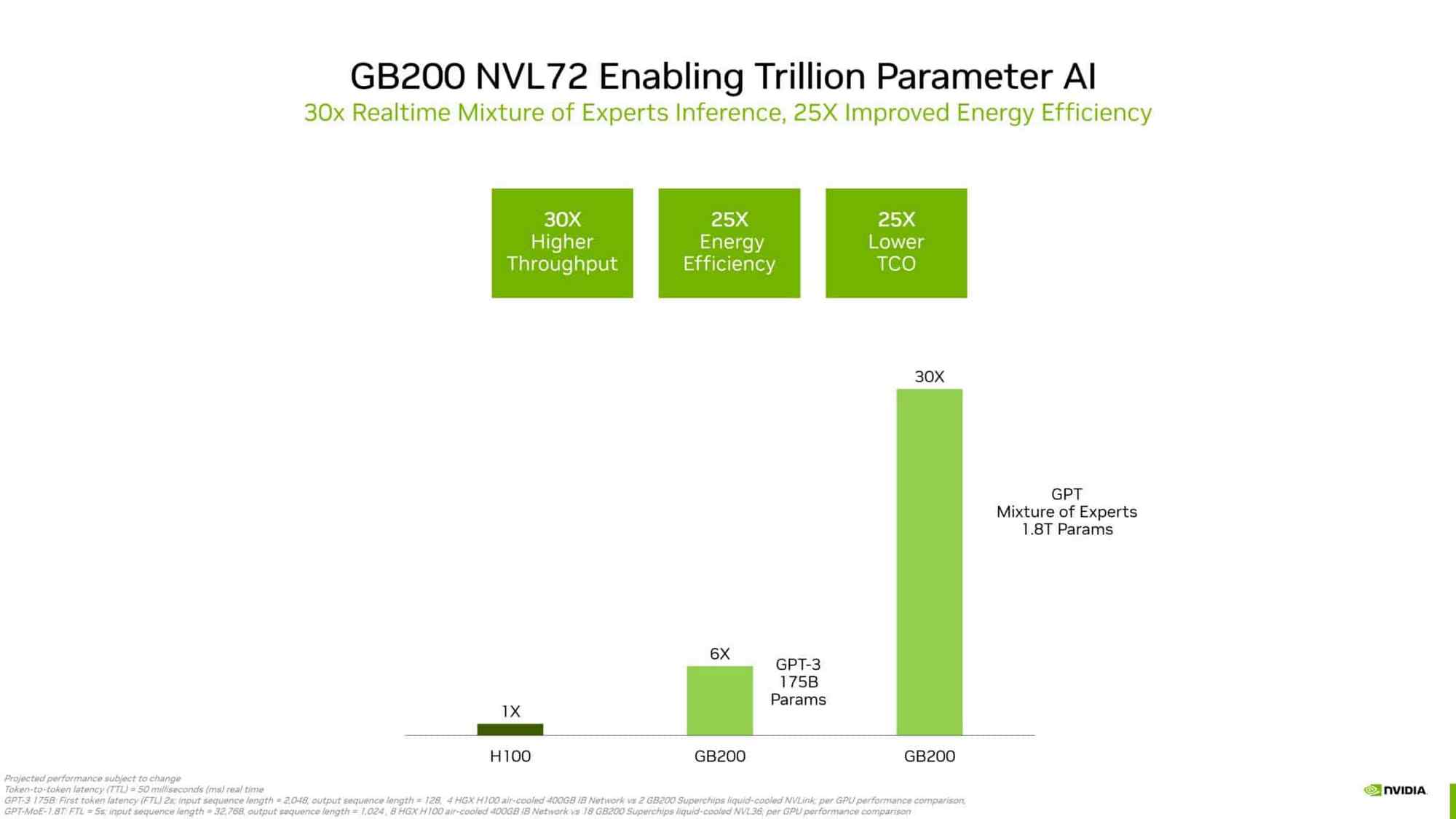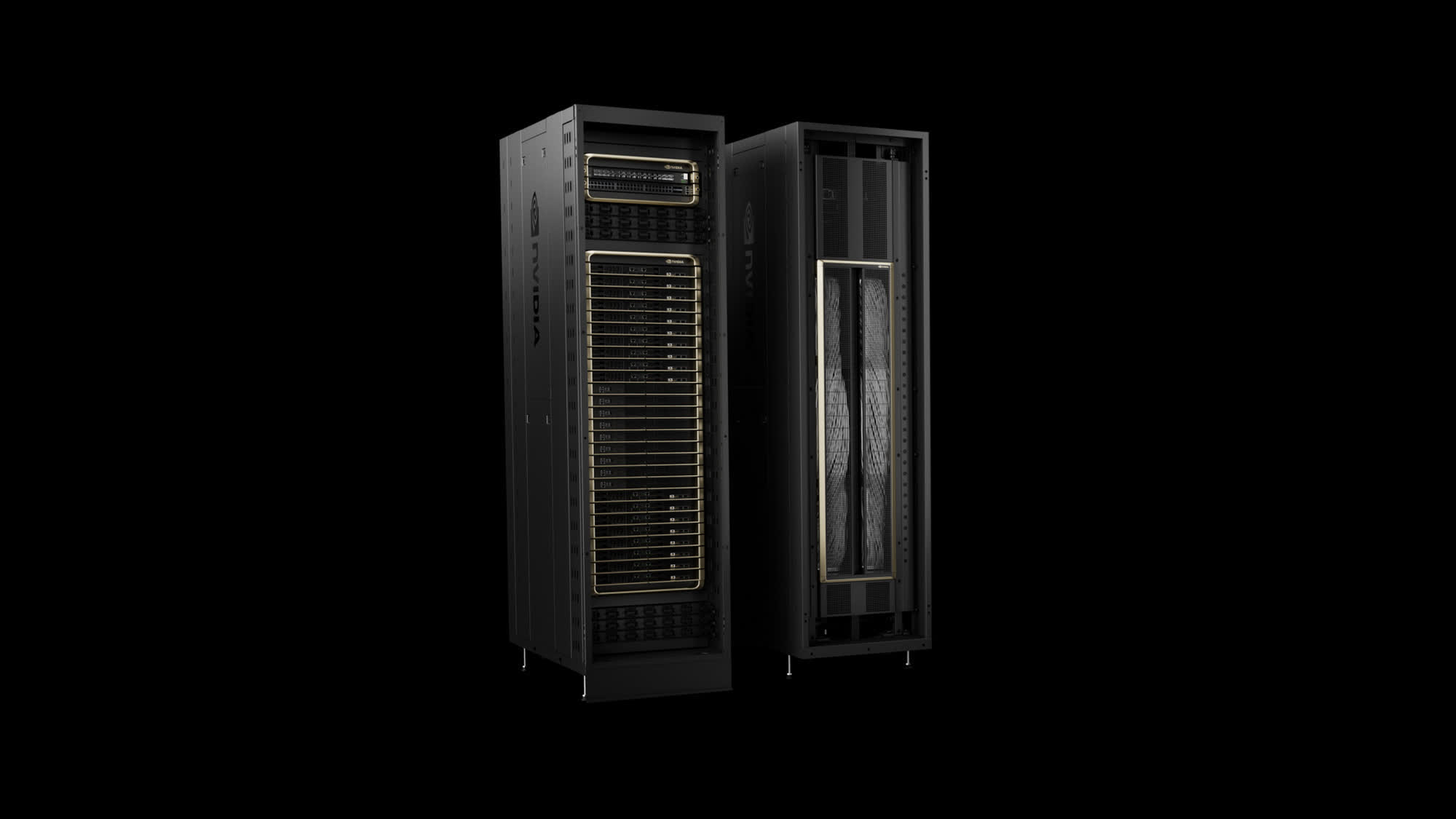The big picture: Nvidia has offered some insights into the performance of its Blackwell GPUs. According to the company, the new graphics architecture will offer a massive leap in compute power compared to the Hopper chips while being significantly more power efficient. The upgrades are expected to benefit several critical sectors, including quantum computing, drug discovery, fusion energy, scientific computing, physics-based simulations, weather simulations, and more.
Nvidia shared some critical performance metrics for its Blackwell accelerators when compared to the older Hopper GPUs in a recent post. According to Team Green, Blackwell GPUs will offer generative AI on trillion-parameter large language models (LLMs) at up to 25x less cost and energy consumption than Hopper.
The new platform is said to simulate weather patterns at 200x lower cost while consuming 300x less energy than the outgoing chips. Nvidia also claims that digital twin simulations can be done at 65x lower cost and 58x less energy consumption when compared to traditional CPU-based systems.

According to Nvidia, the Blackwell GPUs are designed to deliver 30 percent more FP64 and FP32 FMA (fused multiply-add) performance than Hopper. While a single Hopper GPU offers around 34 TFLOPs of FP64 compute performance, a single Blackwell B100 GPU is said to deliver around 45 TFLOPs. In its GB200 "Superchip" avatar that includes 2x B100 GPUs along with the Grace CPU, the Blackwell platform can deliver 90 TFLOPs of FP64 compute performance.
The company also announced that its GB200 NVL72 system with the B200 GPU will offer 30x higher throughput while using 25x less energy and 25x lower TCO (Total Cost of Operation) compared to 72 x86 CPUs. The Blackwell system is also claimed to be 18x faster than Sapphire Rapids CPUs and 6x faster than NVIDIA H100 Tensor Core GPUs in Database Join Query.
Nvidia announced its Blackwell GPU platform in March with the promise of more horsepower and better power efficiency. The initial lineup includes the B200 GPU and GB200 Grace "superchip" that are designed for generative AI processing. While the company remained tight-lipped about its next-gen gaming GPUs, rumors suggest that Blackwell-based graphics cards for gamers will hit the market either late this year or in early 2025.
